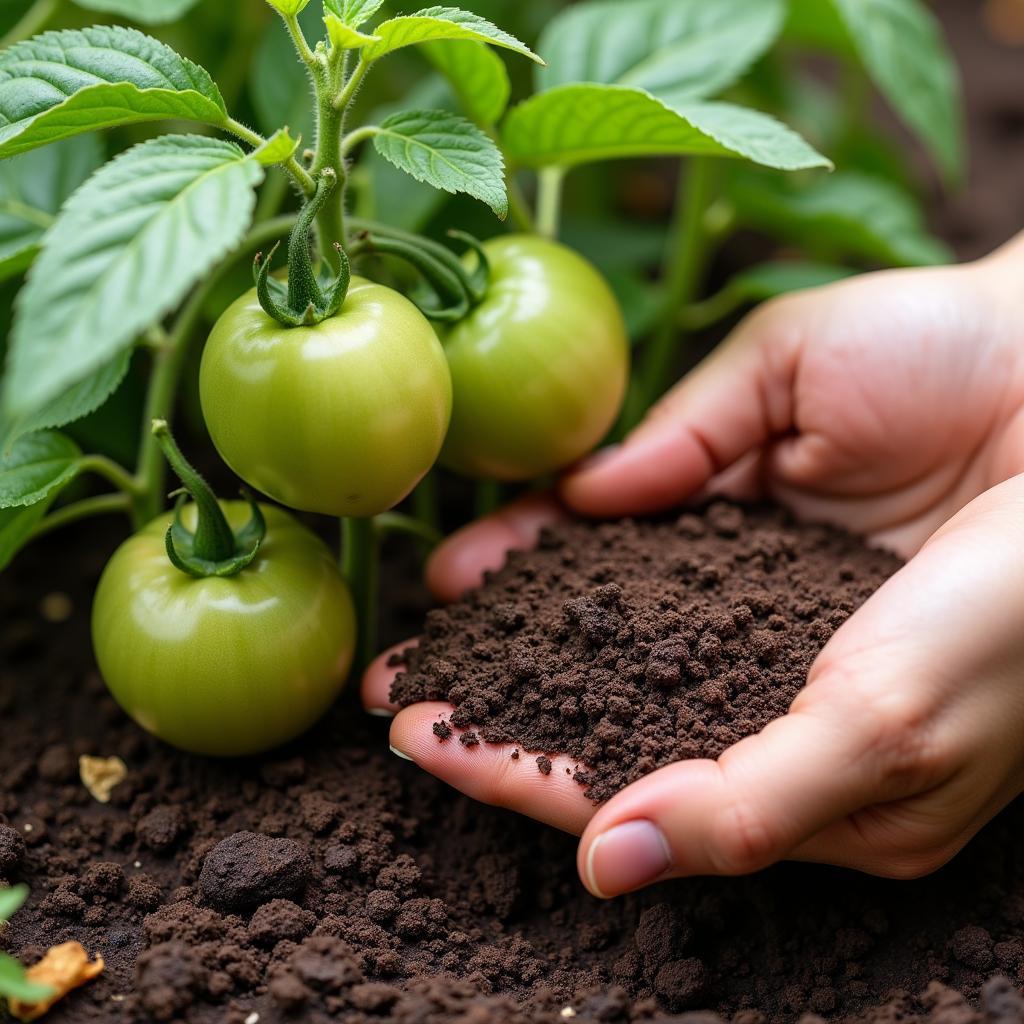African Earthworm for Vermicomposting: A Guide to Sustainable Gardening
African earthworms have become increasingly popular in vermicomposting, offering a natural and effective way to transform organic waste into nutrient-rich fertilizer. These remarkable creatures, known for their voracious appetites and ability to thrive in diverse environments, can significantly benefit your garden and contribute to a more sustainable lifestyle.
Understanding the African Earthworm
The african earthworm scientific name is Eudrilus eugeniae, but they’re commonly referred to as the “African Nightcrawler.” Originating from tropical regions of Africa, these earthworms are well-suited for warmer climates and can efficiently process large amounts of organic material. Unlike their common earthworm counterparts, African earthworms reproduce quickly, speeding up the composting process.
Benefits of Using African Earthworms
Why choose African earthworms for your vermicomposting? Here are some compelling reasons:
- High Rate of Consumption: African earthworms are known for their impressive appetites, consuming up to their own weight in food scraps and bedding daily. This rapid consumption translates to faster decomposition of organic matter and quicker production of vermicompost.
- Adaptability: These earthworms are highly adaptable and can tolerate a wider range of temperatures compared to other composting worms.
- Prolific Reproduction: African earthworms reproduce quickly, leading to a thriving worm population and accelerated composting.
- Nutrient-Rich Vermicompost: The vermicompost produced by African earthworms is rich in essential nutrients for plant growth, promoting healthier and more vibrant gardens.
 African Earthworm Castings in Garden
African Earthworm Castings in Garden
Setting Up Your African Earthworm Vermicompost Bin
Creating the perfect environment for your African earthworms is crucial for successful vermicomposting. Here’s a step-by-step guide to setting up your bin:
- Choose the Right Bin: Select a well-ventilated bin with drainage holes. Plastic storage containers or dedicated vermicomposting bins work well.
- Prepare the Bedding: Create a comfortable bedding layer using shredded newspaper, cardboard, or coconut coir. Moisten the bedding without making it soggy.
- Introduce the Worms: Add your African earthworms to the prepared bedding.
- Start Feeding: Bury your food scraps under a layer of bedding. Suitable food scraps include fruit and vegetable peels, coffee grounds, and eggshells. Avoid meat, dairy, and oily foods.
Maintaining Your Vermicompost Bin
Once your bin is set up, follow these tips to maintain a healthy and productive worm farm:
- Keep it Moist: Maintain a damp environment for the worms.
- Provide Adequate Ventilation: Ensure proper airflow to prevent unpleasant odors and maintain a healthy worm population.
- Harvest the Vermicompost: When the bin is mostly filled with rich, dark compost, it’s time to harvest.
Troubleshooting Common Vermicomposting Issues
- Foul Odors: This usually indicates insufficient ventilation or overfeeding.
- Fruit Flies: Avoid adding overly ripe fruits and vegetables, and ensure food scraps are buried properly.
- Slow Decomposition: This could be due to inadequate moisture, improper temperature, or an insufficient worm population.
African Earthworms: A Natural Solution for Sustainable Living
Embracing african night crawler vermicomposting not only benefits your garden but also contributes to a more sustainable lifestyle. By transforming kitchen scraps into valuable fertilizer, you reduce landfill waste and minimize your environmental impact. These amazing creatures exemplify nature’s ability to recycle and renew, providing a powerful reminder of our interconnectedness with the natural world.
FAQs about African Earthworms for Vermicomposting
1. Where can I purchase African earthworms?
You can find African earthworms at many garden centers, online retailers, or even local worm farms.
2. What is the ideal temperature for African earthworms?
They thrive in temperatures between 70-80°F (21-27°C).
3. How often should I feed my worms?
Start with small amounts of food and observe how quickly the worms consume it. As the worm population grows, you can gradually increase the feeding frequency.
4. How do I know if my vermicompost is ready to harvest?
The compost should be dark, crumbly, and have an earthy aroma when it’s ready.
5. Can I use vermicompost on all my plants?
Yes, vermicompost is a gentle yet effective fertilizer suitable for a wide range of plants.
Need More Help?
Get in touch with us! We’re here to help you on your vermicomposting journey. Contact us at:
- Phone: +255768904061
- Email: [email protected]
- Address: Mbarali DC Mawindi, Kangaga, Tanzania
Our dedicated team is available 24/7 to assist you!

